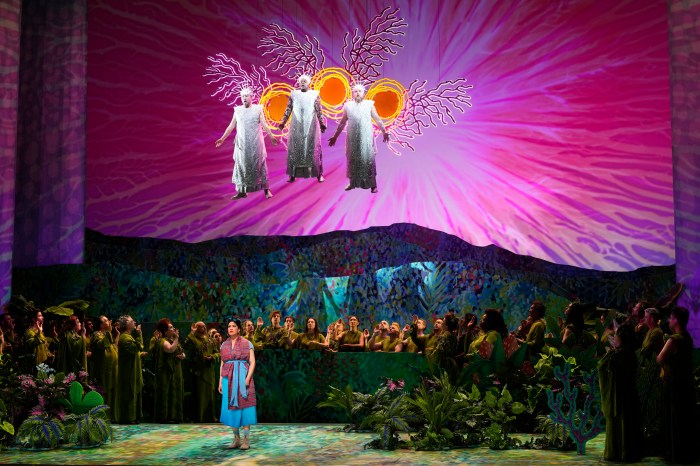Over the course of three albums, San Francisco’s Deafheaven has become one of the country’s most popular up-and-coming metal bands.
Perhaps that’s due to the fact that the group offers something for everyone. Within a single song, Deafheaven can veer from traditional black metal — with screamed vocals, punishing guitar riffs and pounding drums — to ringing, cinematic passages that can sound like post-rock band Explosions in the Sky or even Oasis.
The same qualities that have drawn in new fans have also made Deafheaven a target for some in the metal community who say the group isn’t pure enough and have tagged it with the insult of being “metal for people who don’t listen to metal.” But singer George Clarke doesn’t let the criticism get to him.
“It’s been a strange road for us with the attention we’ve received from outside the metal world,” he said. “We appreciate anyone that takes the time to listen to our music though. … Everyone’s entitled to their opinion.”
Deafheaven’s breakthrough 2013 album “Sunbather” was written while Clarke and guitarist Kerry McCoy were living off food stamps, practically penniless. The album focused on their dreams of a better life. As they recorded their new album, “New Bermuda,” Clarke and McCoy had achieved their goals, living in their own apartments and a earning a steady income. Yet they still weren’t satisfied, leading Clarke to describe the album as being about “the idea of false promise.”
“That’s in reference to dealing with one’s self promises and own expectations of how a new situation should find itself,” he explained. “‘New Bermuda,’ in its most simple form, focuses on life not being the way you had envisioned it. … The music really drives the ideas of disillusionment. It’s a funny thought, but I really wanted to show how passionate I was about my frustration.”
If you go: Deafheaven is at Webster Hall on Nov. 5 at 7 p.m., 125 E. 11th St., $20

















